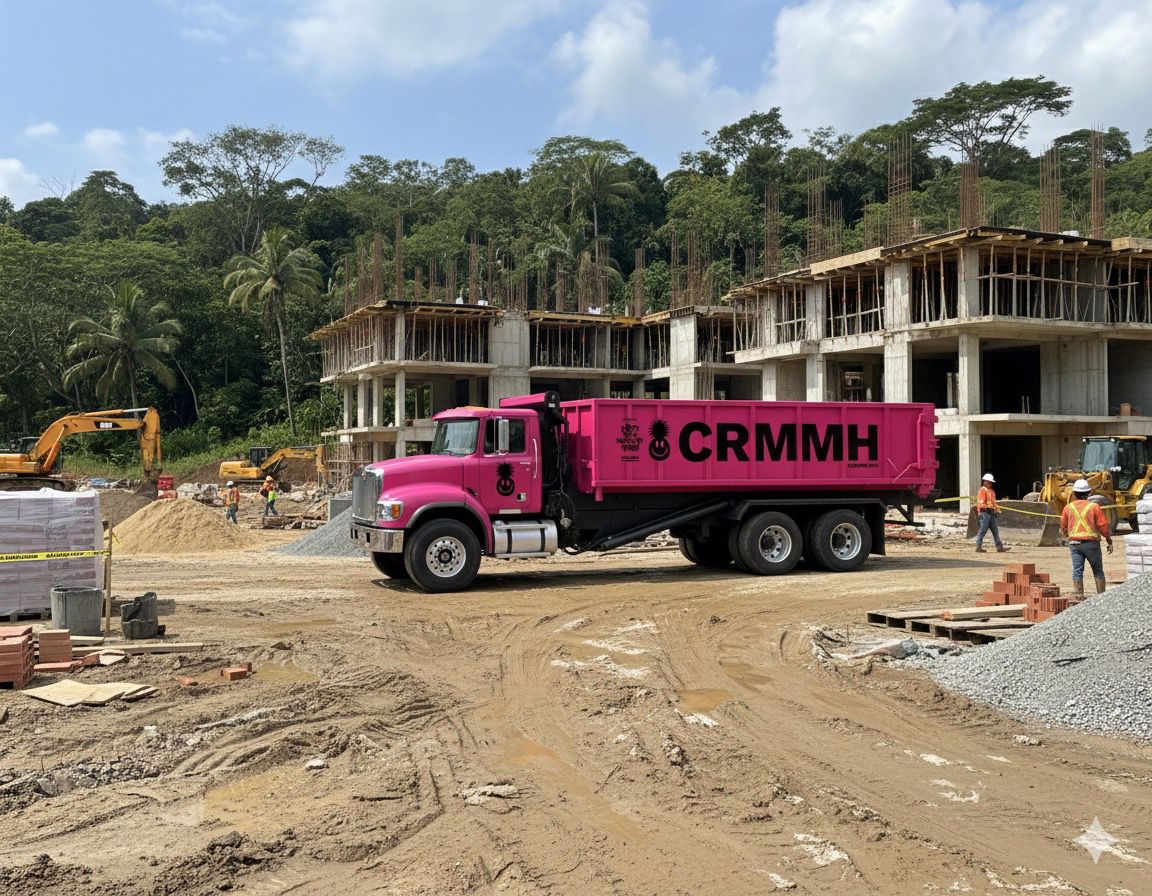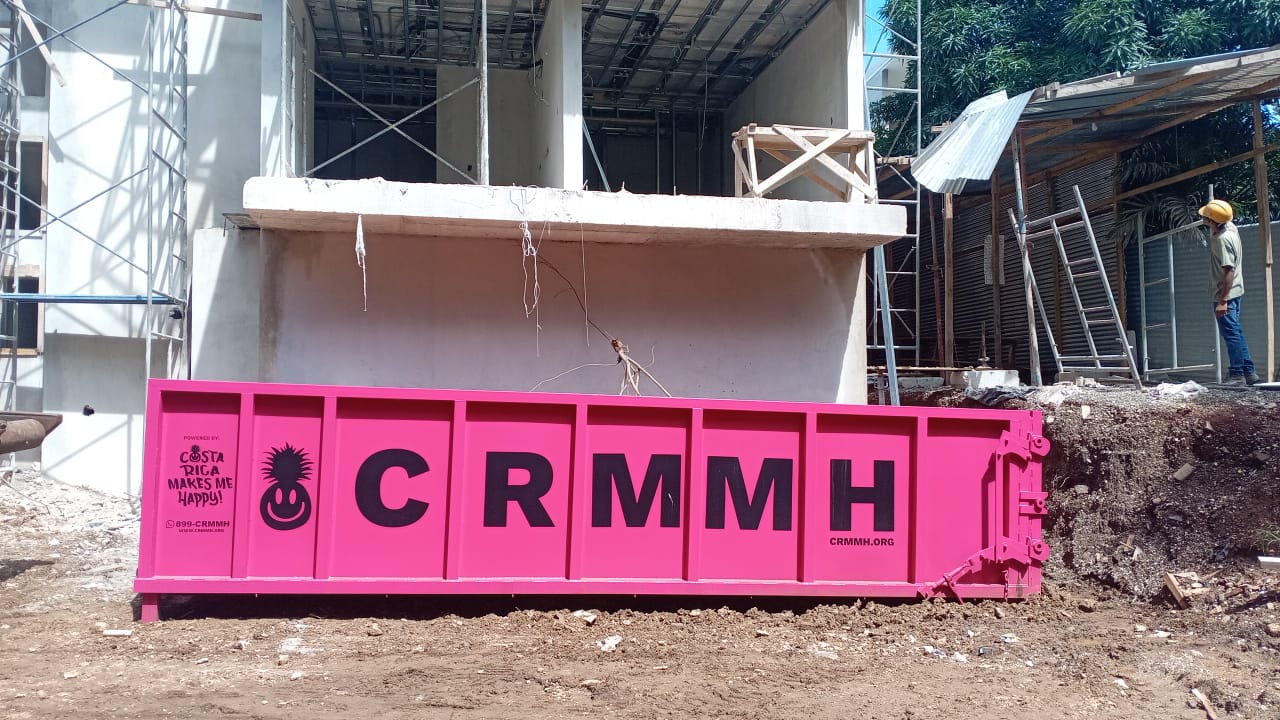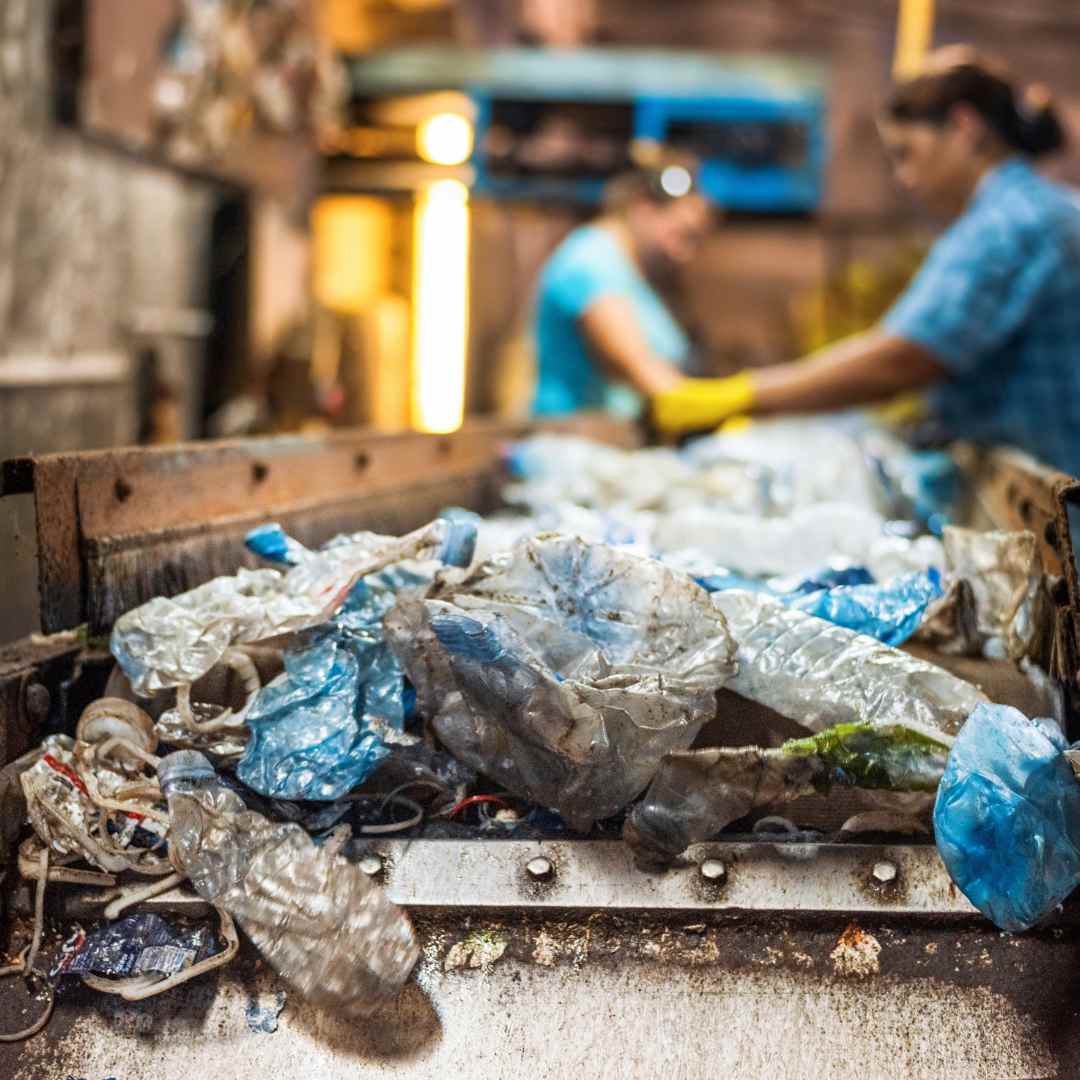How CRMMH Works?
Our comprehensive holistic waste management process ensures responsible disposal and environmental impact.
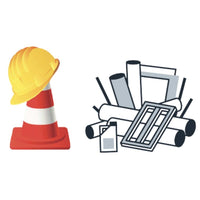
Waste Generation at the Construction site
Start of the process: plastic waste, rubble, cables, and metals are generated during construction.
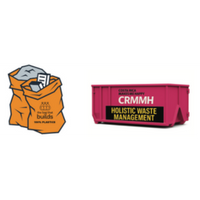
On-Site Classification
Immediate separation according to type of waste: 1) Plastics in CRMMH Orange bags and or in designated area on site 2) rubble into CRMMH container, 3) cables/metals stored in a designated safe area.

Collection by CRMMH
CRMMH coordinates collection on demand and replaces full containers with empty ones.

Waste Disposal by Type
Rubble (concrete/debris) goes to CRMMH-authorized Gestor sites. At the CRRV, plastics are sorted: recoverable plastics are donated to the CRRV, and non-recoverables are converted into RESIN8 by PEDREGAL.

Traceability & Reports
CRMMH provides the construction company with periodic reports detailing the type, quantity, and destination of the waste.

Social & Environmental Impact
Your participation impacts 83 schools, supporting 35,000 local kids, socially at-risk communities, and educational programs
Why Partner with CRMMH?
From compliance to cost savings, CRMMH solves the biggest waste challenges construction companies face—while creating lasting social and environmental impact.
Avoid Regulatory Risk
Navigating Decree 44843-S is complex. As an authorized waste manager, CRMMH ensures your projects meet all legal requirements with certified reports.
Reduce Site Waste & Downtime
Piles of rubble and unmanaged waste slow down progress. CRMMH provides on-demand collection and organized sorting to keep construction moving.
Control Hidden Costs
Unplanned hauling and poor separation increase expenses. Our traceability system maximizes recycling, minimizes landfill fees, and reduces long-term costs.
Build a Positive Reputation
Developers, municipalities, and clients demand responsible practices. Partnering with CRMMH positions your company as a leader in sustainable construction.


